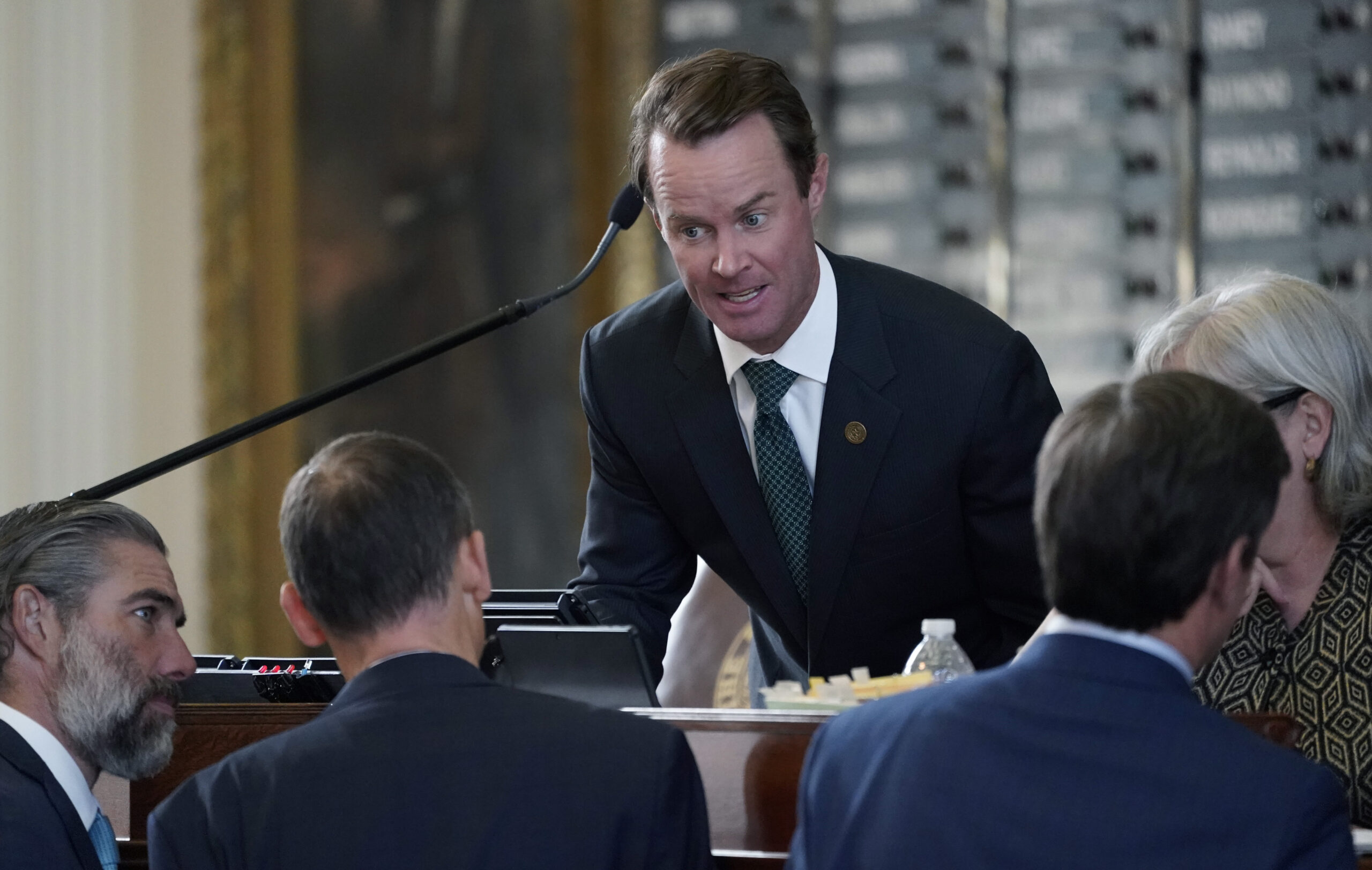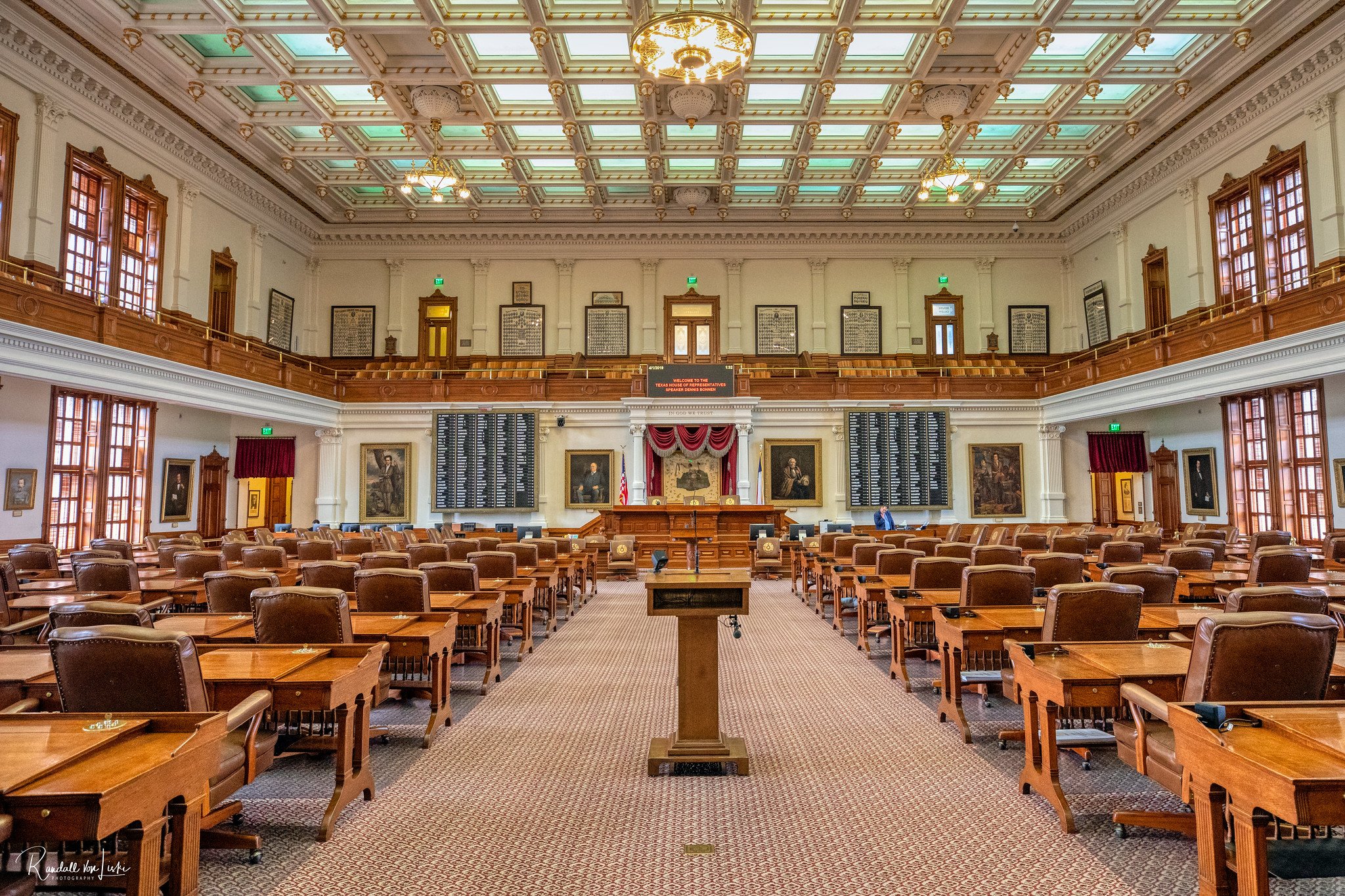The Baddest Bills
Every legislative session, Texas Observer reporters scour for the stupidest, funniest, slap-your-forehead ridiculous and downright unconstitutional bills proposed by Texas lawmakers. We chronicle these flawed pieces of legislation in a section we call Bad Bills. We usually have too many to choose from. This session, with a huge class of unabashed freshmen right-wingers invading the Texas House, the choices were especially tough—and awfully fun—to make. Below we’ve compiled the worst of the worst: the session’s Baddest Bills. Thankfully, none of them passed. So while the 82nd regular session was depressing in many ways, these bills give credence to the notion that it could always be worse.
House Bill 684
Rep. Lyle Larson (R-San Antonio)
Rep. Larson had an unorthodox idea for dealing with the state’s overcrowded jails–put all those criminals in tents.
Larson’s bill would have authorized county jails to house prisoner’s in tents, creating “tent city prisons,” complete with smores, bug juice, and scary stories around the camp fire. OK, we were kidding about that last part.
While it does conjure nostalgic memories of childhood summer camp, the reality is not so quaint. Tents would have been less secure for prisoners, guards and the surrounding communities—and, in the end, not that much cheaper. Not to mention the likelihood of inhumane conditions.
While Larson’s legislation was attempting to solve a serious overcrowding problem in Texas jails, his proposal simply addressed the symptoms of a deeper sickness. Every year 11,000 people are locked up for minor charges like marijuana possession or graffiti, while many others struggling with serious mental illnesses or substance-abuse problems languish in county jails without getting the help they need.
Instead of erecting cheap tents to house even more criminals, Texas should focus more on supervision, counseling and diversion programs that are proven to keep people out of county jails. Unfortunately, these are the types of programs that lawmakers ended up cutting in this year’s budget bloodletting.
Fortunately, Larson’s tent city prisons never really got off the ground. But because of state budget cuts, jail overcrowding is likely to get worse.
House Bill 99
Rep. Trey Martinez Fischer (D-San Antonio)
It takes a little sober thinking to see why Rep. Trey Martinez Fischer’s bill to curb drunk driving was a bad idea.
House Bill 99 proposed a new penalty for anyone caught driving with a blood alcohol content (BAC) of .16 or higher—“aggravated driving while intoxicated.” This enhanced DWI would have been a Class A misdemeanor with a minimum jail time of 30 days.
While increasing penalties for drunkards driving with a BAC twice the legal limit may seem like a good idea on the surface, it isn’t likely that it will deter anyone from drinking and driving. If current DWI laws aren’t stopping people from driving drunk already, enhancing the penalty isn’t likely to dissuade anyone.
Texas routinely has among the highest numbers of drunk driving arrests in the country. But Martinez Fischer’s proposal would have crammed even more people into our already-overcrowded jail system without addressing the root cause of the issue: substance abuse and addiction.
Widely supported by law enforcement agencies and advocacy groups like Mothers Against Drunk Driving, House Bill 99 was passed out of committee in April. But this poorly conceived drunk- driving enhancement hit a speed bump on the way to the House floor and never came up for a vote.
House Bill 22
Rep. Debbie Riddle (R-Tomball)
Even before the session began, Debbie Riddle, R-Tomball— the same Debbie Riddle who claimed on national television last year that the United States faced the threat of an intricate “terror babies” plot—camped out on the cold granite floors of the Capitol to pre-file this ludicrous piece of immigration legislation.
House Bill 22 mandated that parents submit their children’s birth certificates or immigration papers to enroll them in Texas public and charter schools. The bill would have required parents to inform the school of their child’s immigration status in the first 30 days of the school year. It also required schools to report the number of students who are citizens, immigrants or are enrolled in bilingual or special-language classes to the Texas Education Agency.
School boards, administrators, teachers and families feared the bill would create an adversarial relationship between schools and families, if schools were forced to act like immigration officials. Some parents might have opted not to send their kids to school at all.
Apparently, Riddle herself still has some learning to do. HB 22 never even received a committee hearing.
House Bill 471
Rep. Charles “Doc” Anderson (R-Waco)
As if it’s not already difficult enough for employees to form unions in Texas, Rep. Doc Anderson, R-Waco, tried to make it even harder this session.
Anderson’s House Bill 471 proposed to limit the ways employees can organize. Current federal labor law allows workers to form unions in one of two ways: a secret ballot election run by the National Labor Relations Board, or “majority sign-up” in which if more than half the employees want to form a union, they simply sign authorization cards and their employer can bypass the election process and recognize the union.
Anderson’s bill was aimed at eliminating the latter option in Texas. Proponents said the majority sign-up would open the door to intimidation among workers. However, when similar bills have been filed in previous sessions, workers rights advocates argued the opposite. Recent studies have shown that it’s employers who intimidate their workers into not organizing at all or electing certain union leaders. Experts also argued that a bill like Anderson’s would invite a lawsuit from the federal government. In fact, at the beginning of the year the National Labor Relations Board threatened to sue any state that passed legislation limiting the ways employees can organize.
No need to worry about litigation, though. Anderson’s bill passed out of House committee but never came to the floor for a vote.


